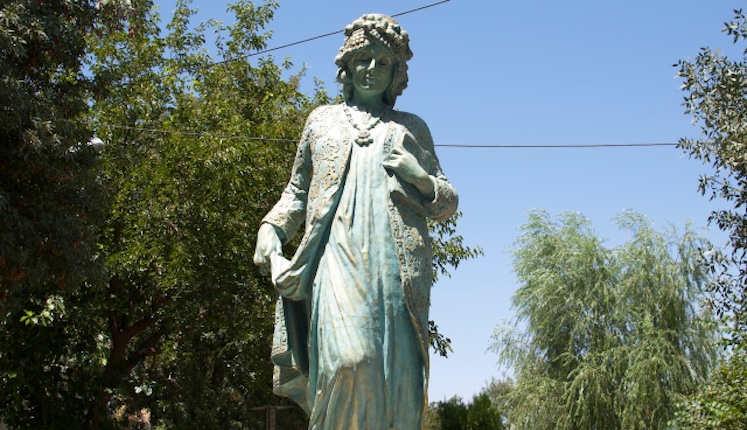 Image: “Mastoureh” statue by Hadi Ziaoddinni (2012)
Image: “Mastoureh” statue by Hadi Ziaoddinni (2012)
This day-long workshop will bring together scholars from across disciplines to explore contemporary Iranian or ‘Rojhelati’ Kurdistan. Panels will explore Kurdish identity and gender, history writing and politics, and representation and resistance. Researchers will present their ongoing work for constructive feedback and discussion.
Iranian or ‘Rojhelati’ Kurdistan has been relatively underresearched in Kurdish Studies as well as being marginalised in Iranian Studies. However, in recent years there has been a transformation in scholarly writing, with particular attention paid to contributions originating from within Iran, indicating the emergence of an independent Kurdish academia within state-run higher education institutions.
The period following the Islamic Revolution in Iran was significant for modern Kurdish history through events such as the rise of the Kurdish movement, interstate war, military conflicts, political oppression and the rise of domestic and exile nationalism.
Socio-economically, the region continued to grapple with underdevelopment, exacerbated by centralising policies of the state. Kurdish society has undergone profound transformations, characterised by urbanisation, demographic shifts, the evolution of educational and healthcare institutions, rapidly changing gender relations and extensive internal and external migrations.
Concurrently, Kurdish culture has made substantial strides in its engagement with hegemonic, state-supported culture. Furthermore, since 2000, civil society, represented by diverse organisations and movements, has witnessed substantial expansion, yielding significant socio-political effects. The proliferation of higher education institutions has played a pivotal role in driving social and intellectual transformations within Kurdish society over the past two decades.
Political developments in the region, escalating global interactions, migration trends, and the advent of the internet have also collectively contributed to shaping the context for an increasingly dynamic society.
If you are interested in attending this workshop please register here.
Download the agenda here
This workshop has been organised by Dr Marouf Cabi and Robert Lowe, LSE Middle East Centre and Dr Allan Hassaniyan, University of Exeter.